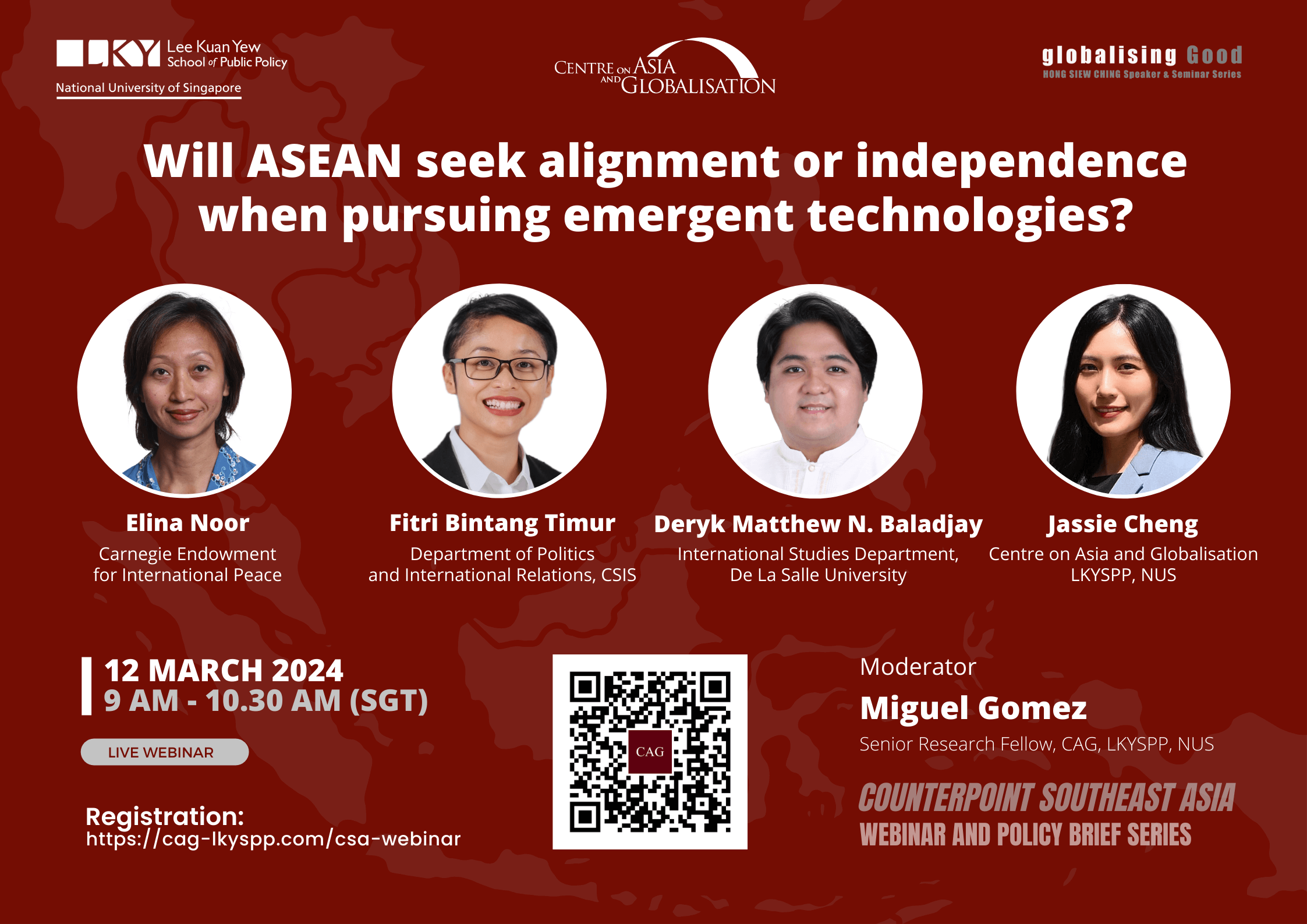From cybersecurity to artificial intelligence, emerging technologies are strategic enablers that further political, economic, and societal objectives. This phenomenon is not lost among ASEAN member states as they continue developing policies and building capacities to exploit these technologies. Nevertheless, technology alone does not define success. Context matters, perhaps more so in the case of Southeast Asia.
Caught between resurgent geopolitical competition, Southeast Asian states face difficult choices. On the one hand, the United States and China are essential providers of technology and expertise. As such, aspirants may find alignment necessary to ensure continued access to these resources – risking the ire of the slighted great power. On the other hand, states may choose the path of independence, maximizing domestic and regional capacities and expertise to leverage novel technologies in support of their interests. Either choice is not without substantial risks, and it becomes necessary to unpack the logic driving policy choices in Southeast Asia on how best to navigate the complex international environment in pursuit of emergent technologies.
For an engaging conversation on this topic, join us for the 10th Counterpoint Southeast Asia public webinar on 12 March 2024, which asks, “
Will ASEAN seek alignment or independence when pursuing emergent technologies?”. Four analysts from the region will provide their unique perspectives on this question.
Ms Elina Noor is a senior fellow in the Asia Program at Carnegie where she focuses on developments in Southeast Asia, particularly the impact and implications of technology in reshaping power dynamics, governance, and nation-building in the region. Previously, Elina was director of political-security affairs and deputy director of the Washington, D.C. office at the Asia Society Policy Institute. Prior to that, Elina was an associate professor at the Daniel K. Inouye Asia-Pacific Center for Security Studies in Honolulu. She spent most of her career at the Institute of Strategic and International Studies Malaysia, where she last held the position of director, foreign policy and security studies. Elina was also formerly with the Brookings Institution’s Project on U.S. Relations with the Islamic World.
Dr Fitri Bintang Timur joined the Department of Politics and International Relations, CSIS in 2017 as a Research Consultant. Broadly, her research focus includes peacekeeping, defence and security in Asia Pacific, women in peace and security, non-traditional security, cyber security, as well as Indonesia politics and foreign policy. Prior to joining CSIS Indonesia, she held research and visiting positions at the Philosophy and Political Science Faculty, TU Dortmund University in Germany; the S. Rajaratnam School of International Studies, Nanyang Technological University, Singapore; and Centre for Asian Studies, Ateneo de Manila University, Philippines.
Mr Deryk Matthew N. Baladjay is Lecturer at the International Studies Department of the De La Salle University. He is involved in the NORM Project between the Peace Research Institute Oslo and the Ateneo School of Government that aims to look at the norm-building dynamic between China and Southeast Asia on the digital silk road. His research interests include Philippine foreign and bilateral relations, the PH-US security alliance, geopolitical contests, and Southeast and Northeast Asia security. He also serves as consultant for Amador Research Services and FACTS Asia. His work has been featured in various publications.
Ms Jassie Hsi Cheng is a Research Associate at the Centre on Asia and Globalisation (CAG) at the Lee Kuan Yew School of Public Policy, National University of Singapore. Her research interests include US-China technological competition, ASEAN cyber resilience, AI and semiconductor supply chain, as well as Cross-Strait relations. Previously, she was a press researcher responsible for public relations activities and communications at the Taipei Representative Office in the UK. Prior to her career in London, she worked at the United Daily News TV as a political reporter, covering government policy, major events and various social movements.
Counterpoint Southeast Asia is a webinar and policy brief series that tackles strategic and complex questions facing Southeast Asia by presenting the perspectives of regional academics and policy experts. It is organised by the Centre on Asia and Globalisation, LKYSPP, NUS.
